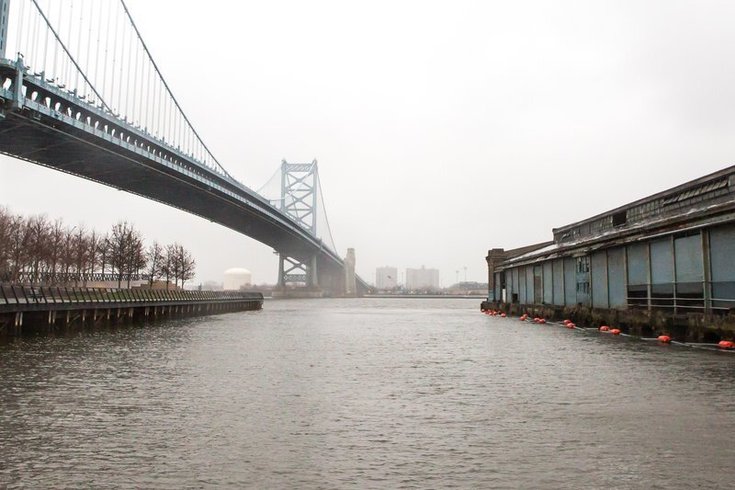
March 29, 2024
 Thom Carroll/PhillyVoice
Thom Carroll/PhillyVoice
Jonathan Atwood, chief of staff for the South Jersey Port Corporation, said "the shipping lines are obviously scrambling this week" following the bridge collapse in Baltimore. The photo above shows the Delaware River.
Three days after the collapse of the Francis Scott Key Bridge in Baltimore, community members, politicians and industries are still trying to figure out the lasting impact of Tuesday's disaster.
As for disruptions to shipping traffic, Philadelphia and New Jersey ports have said they're preparing to take on some of Baltimore's load.
"The shipping lines are obviously scrambling this week to figure out where it makes the most sense for them to get their ships because ultimately they're looking to position a ship closer to its endpoint," South Jersey Port Corporation Chief of Staff Jonathan Atwood said Friday. "So they're trying to keep a lot of ships in the mid-Atlantic area."
The South Jersey Port Corporation (SJPC) operates ports in Paulsboro and Salem. So far, three ships that were destined for Baltimore are scheduled to be docking in South Jersey, and the SJPC expects about a 25% increase in cargo volume.
While it's unclear exactly how long things will be diverted until Baltimore's harbor is cleaned up and reopened, Atwood said the expectation is about four to six weeks.
"They may ultimately open that up to a few ships a day and so that changes some of the calculations, so we're all sort of waiting to see what happens in Baltimore," Atwood said.
The Port of Philadelphia released a statement earlier this week saying that it had also received inquiries about diverting cargo to Philly. The Delaware River Port Authority didn't respond to a request for comment.
Atwood said he doesn't think the disaster in Baltimore will have a huge impact nationwide as far as shipping and supply chain, though the mid-Atlantic area will have to adjust. He also doesn't think consumers will be affected, but he noted it's all dependent on the Army Corps' work sorting through the wreckage.
Baltimore received a $60 million commitment from the Biden administration for emergency-relief funding, which will cover demolition, traffic operations and recovering debris, according to Maryland's Transportation Secretary.
"It's not like a pandemic, I don't think there will be long-term disruptions in supply chain, but it does illustrate why ports are important and why it's important to have a number of ports," Atwood said.